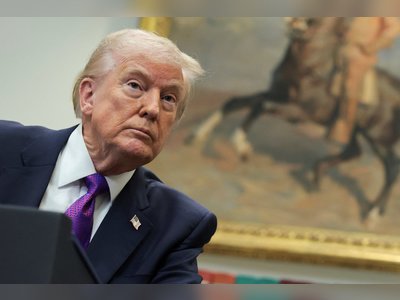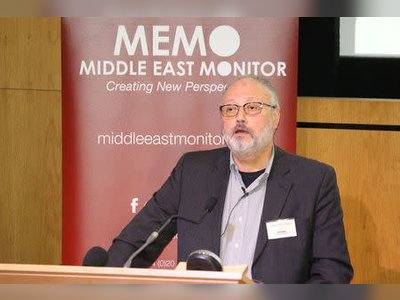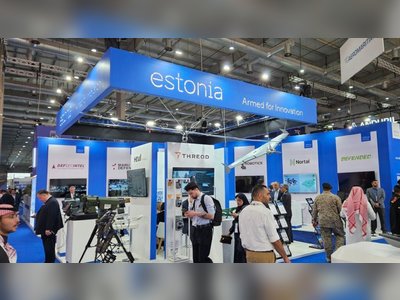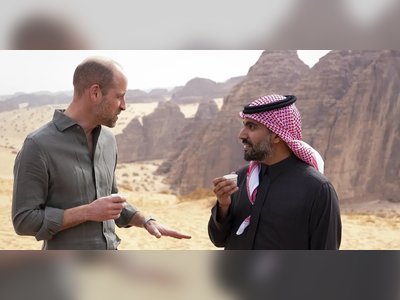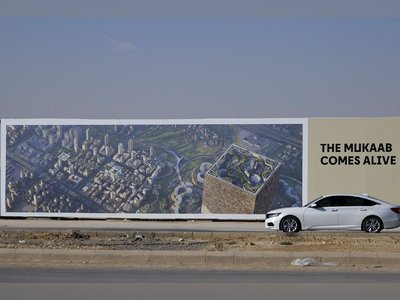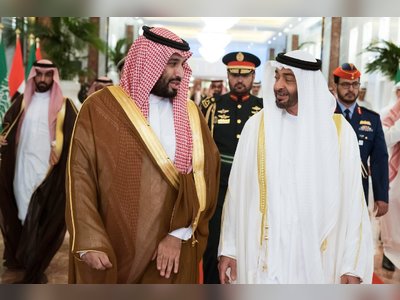Chinese Giant BYD Potentially Delivers Knockout Blow to Tesla
Unprecedented industrial growth and mass marketing of electric vehicles.
In 2007, when Chinese battery manufacturer BYD, attempting to enter the automotive production arena, displayed its latest car models, American executives at the Guangzhou Auto Show chuckled at the uneven purple paint job and poor-fitting doors, expressing their astonishment. Automotive industry analyst in China, Michael Dunne said: "The company was the industry’s laughingstock."
BYD Surpasses Tesla in Sales
Today, no one is laughing at BYD (Beyond Your Dream). The Chinese enterprise surpassed Tesla in global electric vehicle sales towards the end of last year. BYD is constructing assembly lines in Brazil, Hungary, Thailand, Uzbekistan, and is preparing to do so in Indonesia and Mexico, expanding rapidly into European exports.
The company is also on the verge of overtaking Volkswagen Group, which includes Audi, as a leading player in the Chinese market. BYD, which sees over 80% of its sales within China, saw sales increase by nearly one million cars each in the past two years. The last carmaker to achieve such a feat in the American market within a single year was General Motors in 1946, following a four-year halt of passenger car sales due to World War II.
Unmatched Industrial Growth
Matt Anderson, curator of transportation at the Henry Ford Museum in Dearborn, Michigan, remarked: "BYD’s growth is unlike anything the industry has witnessed in many decades." Located in Shenzhen, China’s electronics manufacturing hub, BYD has demonstrated how Chinese automakers can leverage the country's dominance in electronic products.
No company has benefited as much from China's embrace of battery-electric and plug-in hybrid electric vehicles. These vehicles, combined, represent 40% of China’s car market, the largest globally, anticipated to exceed 50% next year.
Like most Chinese automakers, BYD does not sell its cars in the U.S. due to enduring tariffs from Donald Trump’s era, but it does sell buses in the States.
BYD Leads Global Car Carrier Ship Initiative
BYD spearheads China's electric car export initiative, rapidly building the world’s largest car carrier ships. The first vessel, "Explorer No. 1," embarked on its maiden trip from Shenzhen with 5,000 electric cars onboard, expected to reach the Netherlands by February 21. With China and BYD's success comes increased scrutiny.
Elon Musk Raises Concerns
Elon Musk, CEO of Tesla, warned about the power of Chinese electric vehicle exports during a company earnings call this past January. He suggested that without trade barriers, "they will, frankly, destroy most other companies in the world pretty much."
BYD's History
Current chairman Wang Chuanfu founded BYD in 1995 to make batteries for Motorola and other electronic companies after studying at Changsha's Central South University, known for its battery chemistry research. But his dream was to manufacture cars.
In 2003, BYD bought a Xi'an-based gasoline car factory. However, it faced initial problems and garnered an early reputation for building outdated cars. Sales of BYD grew with the Chinese market surge.
In 2008, Warren Buffett acquired around 10% of the company's shares for $230 million, lending BYD not just a financial boost but also a global stature. That same year, Wang promised to begin exporting battery-electric vehicles to the U.S. within two years. However, at that time, electric cars were expensive and had limited range, forcing Wang to abandon his plans for the U.S. market.
In a 2011 interview, Wang questioned his focus on battery-electric vehicles, announcing automakers should concentrate on hybrid gasoline-electric vehicles.
Revamping Strategy
In 2016, Wang hired prominent Audi designer Wolfgang Egger, who in turn recruited hundreds of bold-taste automotive engineers, completely redesigning BYD models. Wang also discovered how to replace the industry's standard chemical components in rechargeable lithium batteries nickel, cobalt, and manganese with cheaper iron and phosphate. However, these early, cost-efficient batteries depleted quickly and needed charging after short journeys.
In 2020, BYD introduced its own "Blade" batteries, closing most of the so-called "range gap" with nickel and cobalt batteries at a fraction of the cost.
Tesla began manufacturing and selling large numbers of electric cars in China that year, boosting the country's electric car craze. BYD was ready with its cheap battery chemistry and Egger's fresh designs. Tesla also started incorporating lithium iron phosphate batteries into its lower-cost models.
While BYD largely sells cheaper cars with a shorter range, Tesla sells mostly pricier cars with an extended range.
BYD now owns a gated city in Shenzhen, with employees transitioning from company apartments to BYD office towers and research labs via a train. Liu Changchang, an engineer in Shenzhen, stated that his automotive development team has nearly tripled in size since joining from General Motors 15 months ago. "The pace is fast," he added.
BYD Surpasses Tesla in Sales
Today, no one is laughing at BYD (Beyond Your Dream). The Chinese enterprise surpassed Tesla in global electric vehicle sales towards the end of last year. BYD is constructing assembly lines in Brazil, Hungary, Thailand, Uzbekistan, and is preparing to do so in Indonesia and Mexico, expanding rapidly into European exports.
The company is also on the verge of overtaking Volkswagen Group, which includes Audi, as a leading player in the Chinese market. BYD, which sees over 80% of its sales within China, saw sales increase by nearly one million cars each in the past two years. The last carmaker to achieve such a feat in the American market within a single year was General Motors in 1946, following a four-year halt of passenger car sales due to World War II.
Unmatched Industrial Growth
Matt Anderson, curator of transportation at the Henry Ford Museum in Dearborn, Michigan, remarked: "BYD’s growth is unlike anything the industry has witnessed in many decades." Located in Shenzhen, China’s electronics manufacturing hub, BYD has demonstrated how Chinese automakers can leverage the country's dominance in electronic products.
No company has benefited as much from China's embrace of battery-electric and plug-in hybrid electric vehicles. These vehicles, combined, represent 40% of China’s car market, the largest globally, anticipated to exceed 50% next year.
Like most Chinese automakers, BYD does not sell its cars in the U.S. due to enduring tariffs from Donald Trump’s era, but it does sell buses in the States.
BYD Leads Global Car Carrier Ship Initiative
BYD spearheads China's electric car export initiative, rapidly building the world’s largest car carrier ships. The first vessel, "Explorer No. 1," embarked on its maiden trip from Shenzhen with 5,000 electric cars onboard, expected to reach the Netherlands by February 21. With China and BYD's success comes increased scrutiny.
Elon Musk Raises Concerns
Elon Musk, CEO of Tesla, warned about the power of Chinese electric vehicle exports during a company earnings call this past January. He suggested that without trade barriers, "they will, frankly, destroy most other companies in the world pretty much."
BYD's History
Current chairman Wang Chuanfu founded BYD in 1995 to make batteries for Motorola and other electronic companies after studying at Changsha's Central South University, known for its battery chemistry research. But his dream was to manufacture cars.
In 2003, BYD bought a Xi'an-based gasoline car factory. However, it faced initial problems and garnered an early reputation for building outdated cars. Sales of BYD grew with the Chinese market surge.
In 2008, Warren Buffett acquired around 10% of the company's shares for $230 million, lending BYD not just a financial boost but also a global stature. That same year, Wang promised to begin exporting battery-electric vehicles to the U.S. within two years. However, at that time, electric cars were expensive and had limited range, forcing Wang to abandon his plans for the U.S. market.
In a 2011 interview, Wang questioned his focus on battery-electric vehicles, announcing automakers should concentrate on hybrid gasoline-electric vehicles.
Revamping Strategy
In 2016, Wang hired prominent Audi designer Wolfgang Egger, who in turn recruited hundreds of bold-taste automotive engineers, completely redesigning BYD models. Wang also discovered how to replace the industry's standard chemical components in rechargeable lithium batteries nickel, cobalt, and manganese with cheaper iron and phosphate. However, these early, cost-efficient batteries depleted quickly and needed charging after short journeys.
In 2020, BYD introduced its own "Blade" batteries, closing most of the so-called "range gap" with nickel and cobalt batteries at a fraction of the cost.
Tesla began manufacturing and selling large numbers of electric cars in China that year, boosting the country's electric car craze. BYD was ready with its cheap battery chemistry and Egger's fresh designs. Tesla also started incorporating lithium iron phosphate batteries into its lower-cost models.
While BYD largely sells cheaper cars with a shorter range, Tesla sells mostly pricier cars with an extended range.
BYD now owns a gated city in Shenzhen, with employees transitioning from company apartments to BYD office towers and research labs via a train. Liu Changchang, an engineer in Shenzhen, stated that his automotive development team has nearly tripled in size since joining from General Motors 15 months ago. "The pace is fast," he added.





